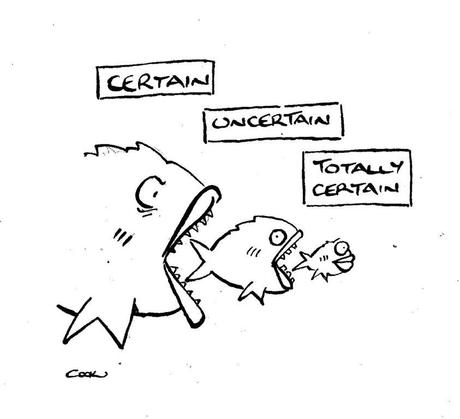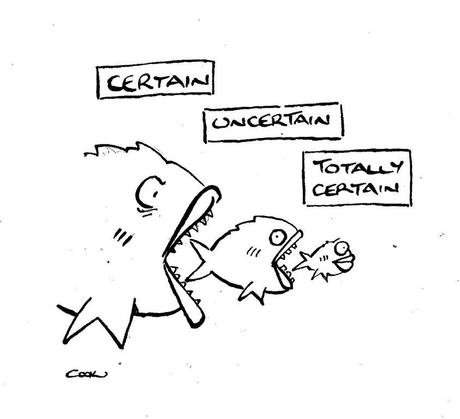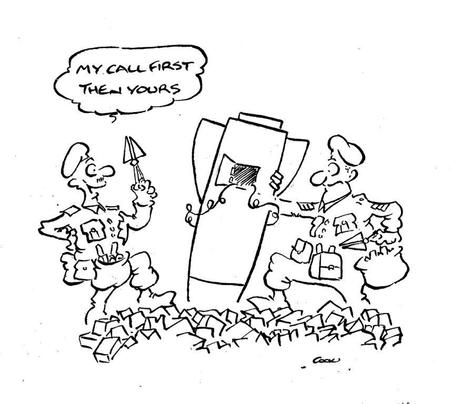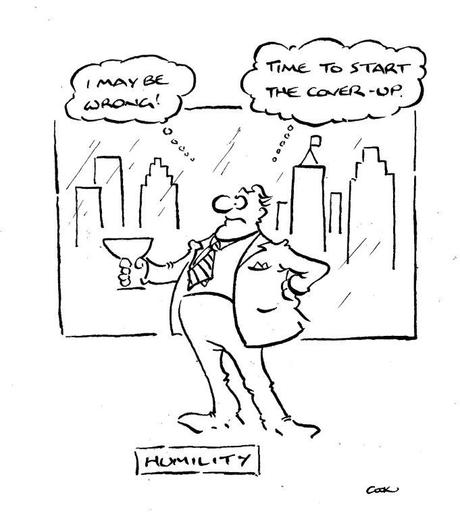

 Certainly uncertain
Certainly uncertain

Ever been put off by the overconfident sales person who expresses complete certainty about everything?
I don’t just mean car salesmen or real estate agents. We can include many a transaction-based dialogue, from insurance brokers to shop assistants. Early in the year, otherwise respected market commentators turn to flawed futurism as they come under pressure to forecast what’s ahead.
I prefer those who are confident but also realistic. It turns out most people do.
Research shows that forecasts — political, financial, cultural — are wrong about 70% of the time. Not only that, forecasters who are the most wrong, the most often, tend to be those the most certain they are right.

It’s not just sales. Sensibly embracing uncertainty in a positive manner can assist any business conversation, whether it’s with colleagues or customers.
Why is that?
We know from life that it’s rarely that simple. You might be the best team in the competition for the whole season only to have an off day in the final. You might go long of equities for all the right 
Apprehension should not be dismissed as ungrounded fear or indecision. It’s more about accommodating the possibility that you could be wrong. Sensibly embracing it means better decisions:
- It allows us to factor in the chance of error. You might have a great strategy but the radar stays on in case a detour is called for.
- It fuels curiosity, helping stress-test alternatives which accommodate the uncertain element. What hedges can you put in place?
- It tempers a tendency toward authoritarian solutions. When we are determined to quickly reach a particular goal, we get blind to sensible alternatives. We drive our existing business model harder when it’s past its use-by date. We set unrealistic sales targets that demotivate staff or encourage people to fudge the numbers.
- It boosts credibility. There is always business risk and acknowledging it displays wisdom. People respond to wise council. It lowers stress for both yourself and the organisation.
- Lastly, it also injects the power of humility. Humble is not a popular word in business, but it helps if you take a positive definition of it, and that is this: it means you and your ideas are neither better than, nor less than; neither overconfident nor underconfident. In other words, they are authentic and realistic.

I'm not sure everyone has noticed but its a bit uncertain out there at the moment. Acknowledging risk - embracing it, accommodating it and managing it - is a key business skill. Science suggests doing so underpins the sort of advice that people are more likely to act on.

